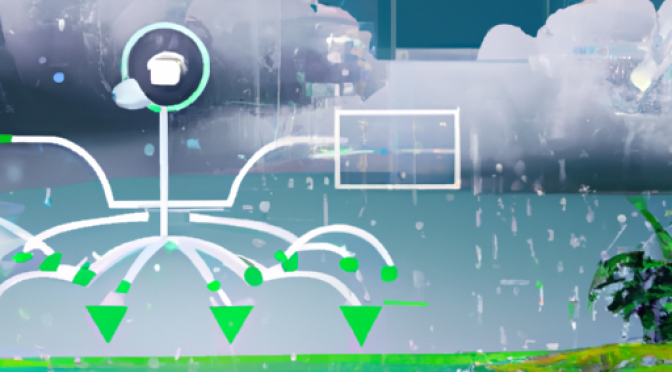Introduction
Climate change has led to increasingly unpredictable rain patterns, posing challenges for farmers and their irrigation systems. In order to optimize irrigation practices and ensure efficient water usage, machine learning techniques can be employed. This article explores how machine learning can assist in optimizing irrigation systems amid unpredictable rain patterns caused by climate change.
Understanding Unpredictable Rain Patterns
Unpredictable rain patterns, a consequence of climate change, make it difficult for farmers to determine when and how much water to provide to their crops. Traditional irrigation systems often rely on historical weather data, which may no longer accurately predict rainfall patterns due to climate change. Machine learning algorithms can analyze large amounts of real-time data, including weather forecasts, soil moisture levels, and crop water requirements, to provide more accurate predictions and optimize irrigation practices.
Machine Learning for Rainfall Prediction
Machine learning algorithms can be trained to analyze historical rainfall data and identify patterns and trends. By considering various factors such as temperature, humidity, wind speed, and geographical location, these algorithms can predict future rainfall with greater accuracy. This information can help farmers adjust their irrigation schedules accordingly, ensuring that crops receive adequate water without wasting resources.
Optimizing Irrigation Schedules
Machine learning can also assist in optimizing irrigation schedules based on real-time data. By continuously monitoring soil moisture levels, weather conditions, and crop water requirements, machine learning algorithms can dynamically adjust irrigation schedules. This ensures that crops receive water when needed, minimizing water stress and maximizing yield. Additionally, machine learning can help identify areas within a field that require more or less water, allowing for targeted irrigation and further water conservation.
Smart Water Management
Machine learning can contribute to smart water management by integrating data from various sources. By combining weather forecasts, soil moisture sensors, and crop water requirements, machine learning algorithms can provide farmers with actionable insights. These insights can help farmers make informed decisions about irrigation, such as adjusting water application rates or implementing precision irrigation techniques. Ultimately, this leads to more efficient water usage and reduced environmental impact.
Conclusion
As climate change continues to disrupt rainfall patterns, optimizing irrigation systems becomes crucial for sustainable agriculture. Machine learning offers a powerful tool to assist farmers in adapting to unpredictable rain patterns. By leveraging real-time data and advanced algorithms, machine learning can optimize irrigation schedules, improve water management, and ensure efficient water usage. Embracing machine learning in irrigation systems is a step towards mitigating the impact of climate change on agriculture and securing food production for future generations.

